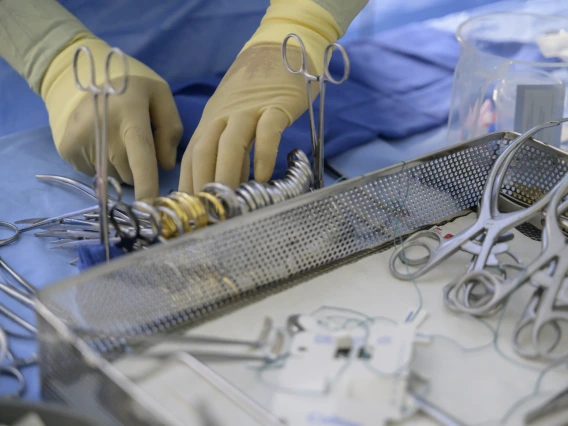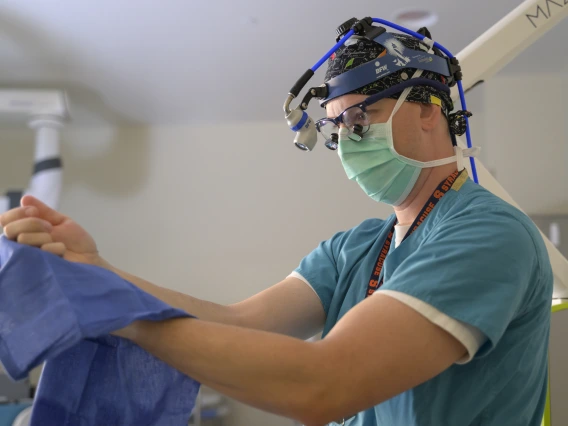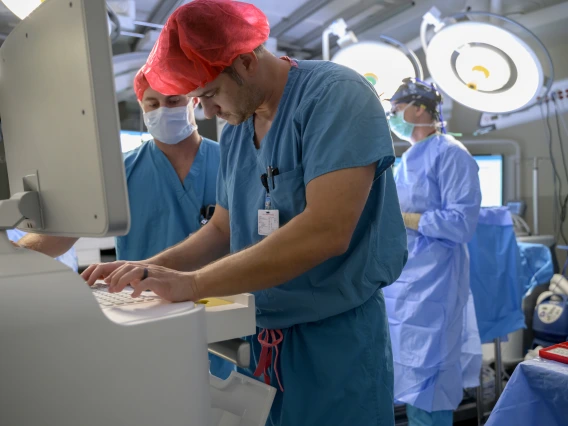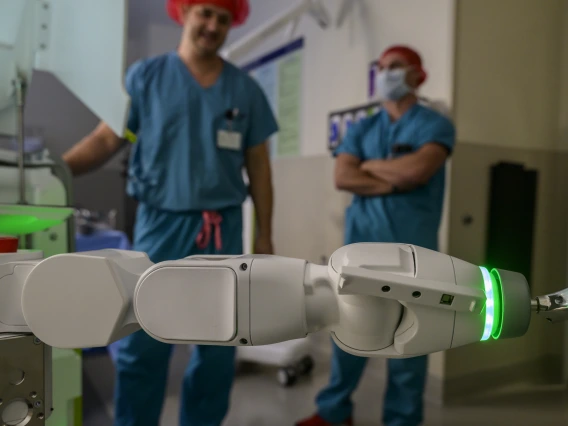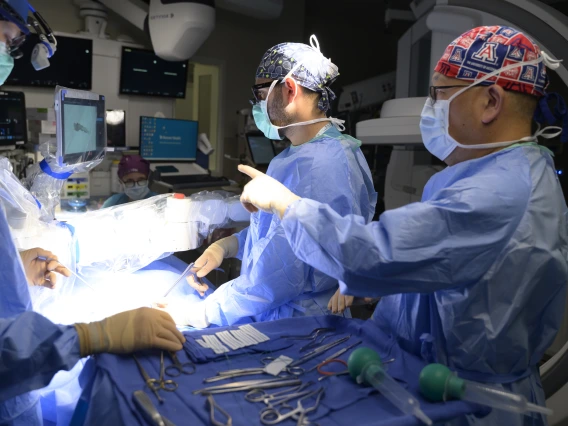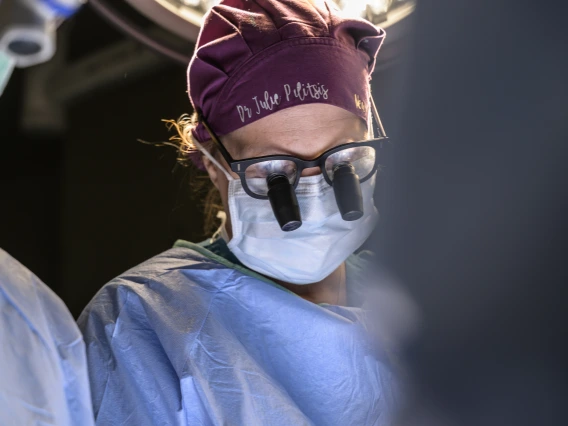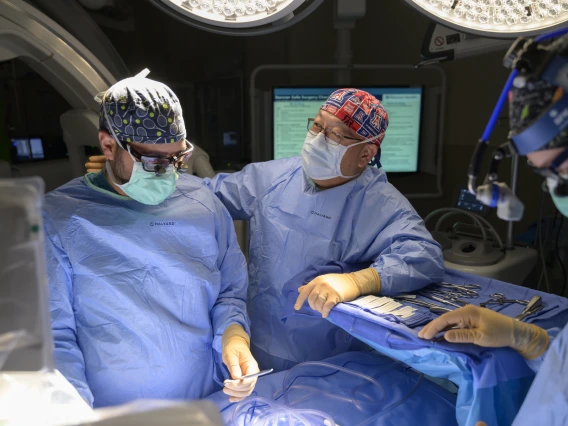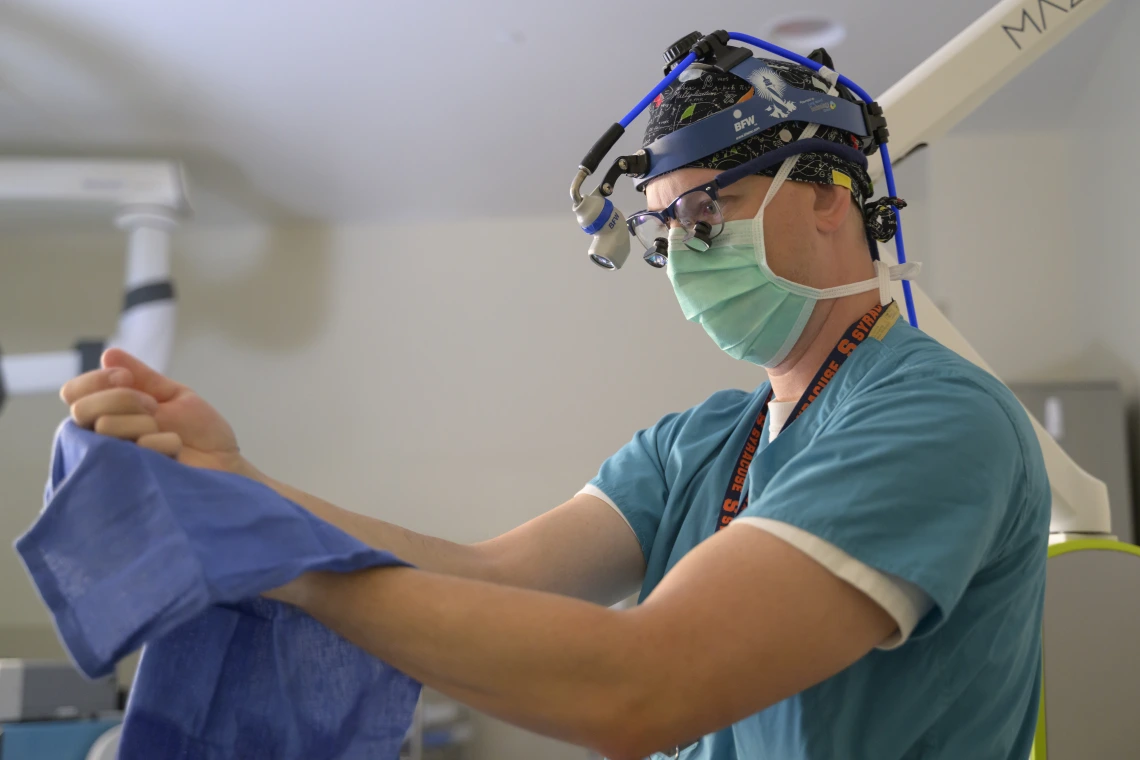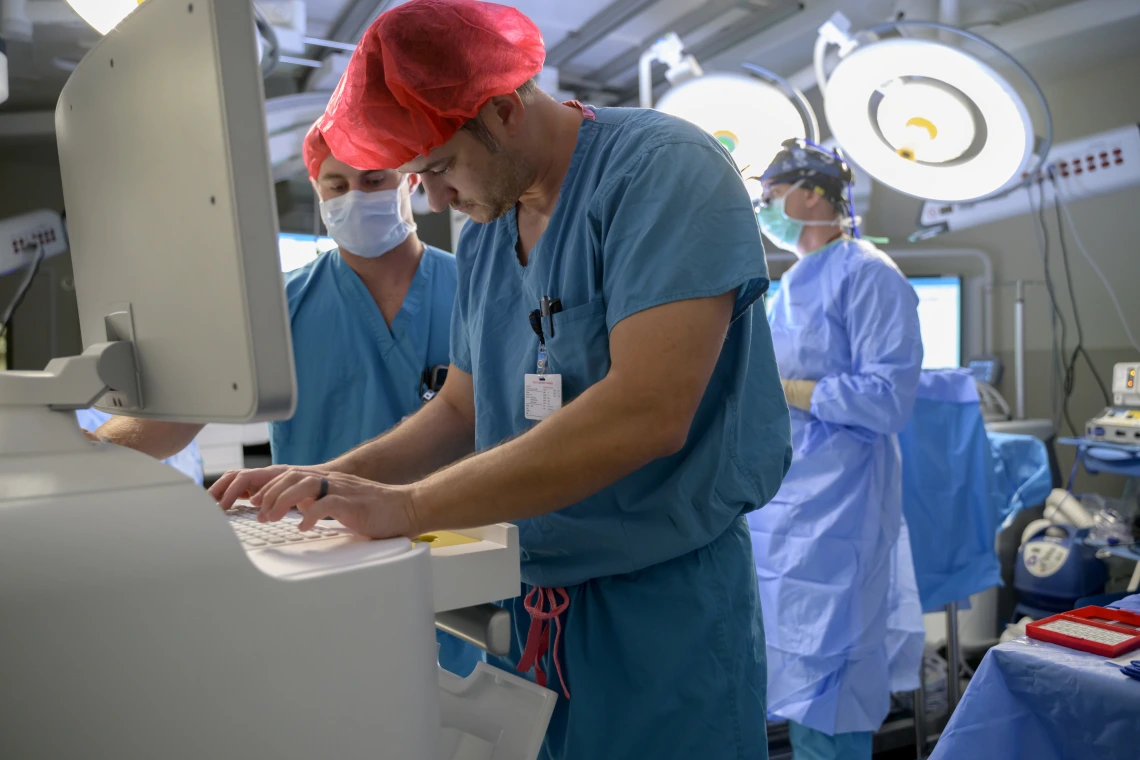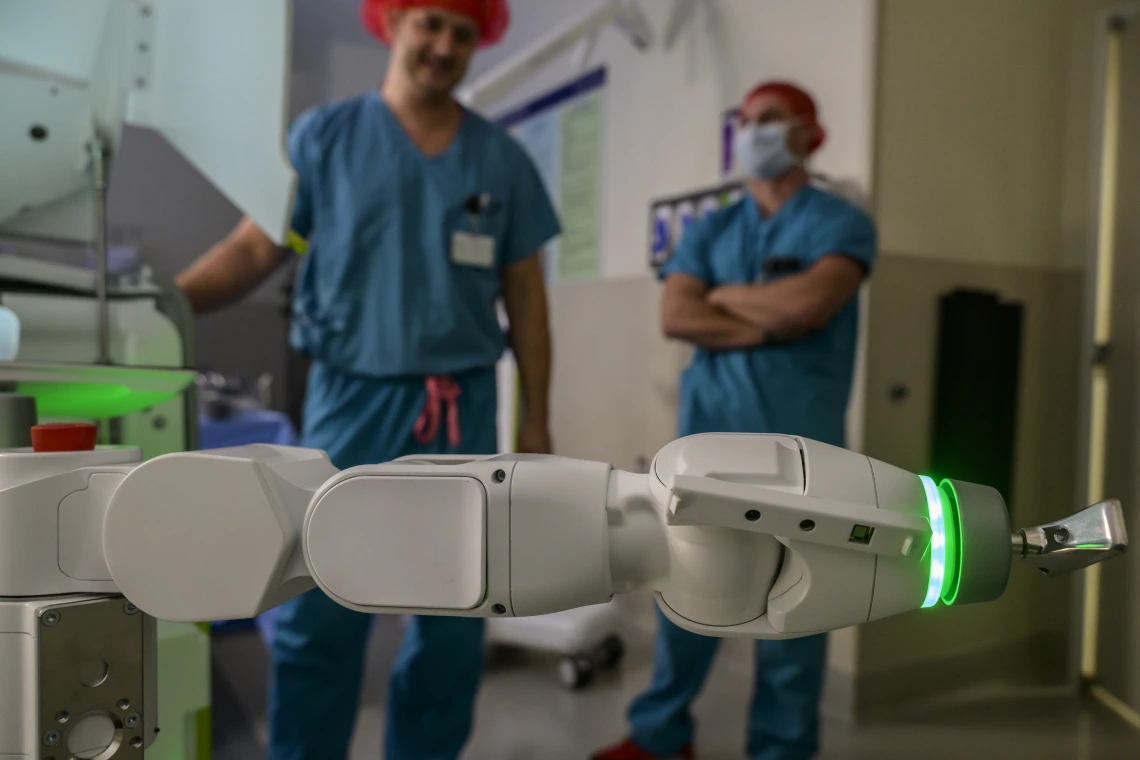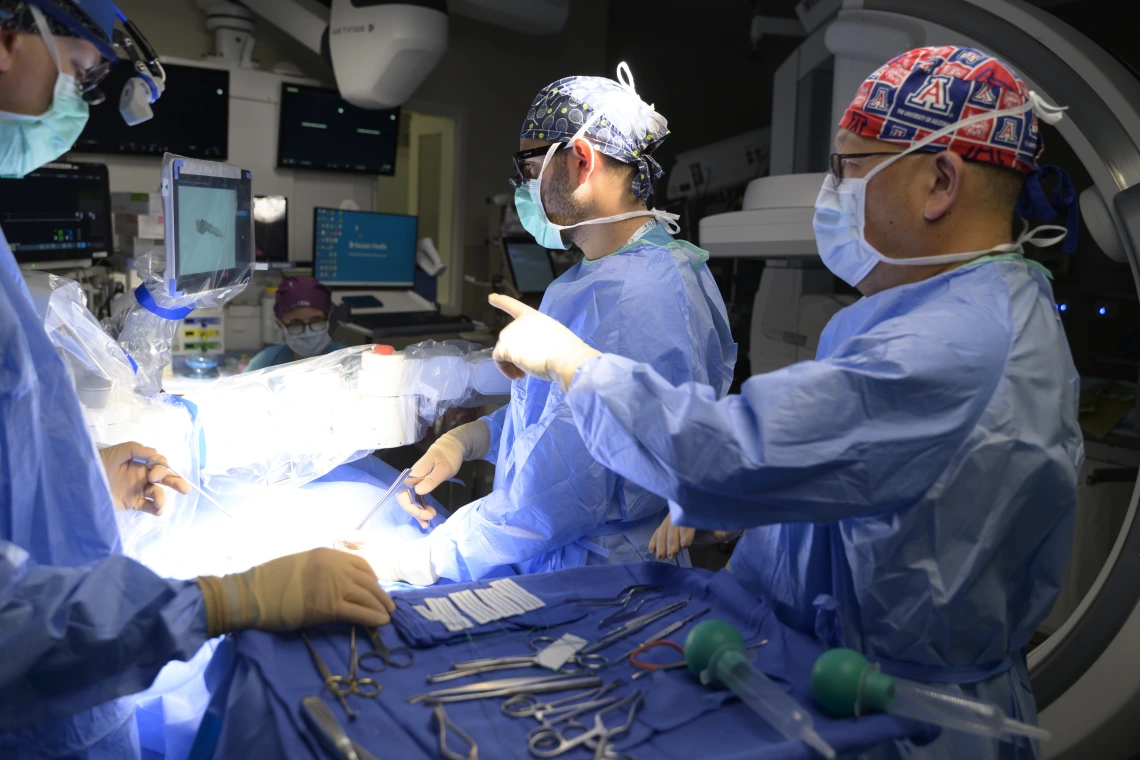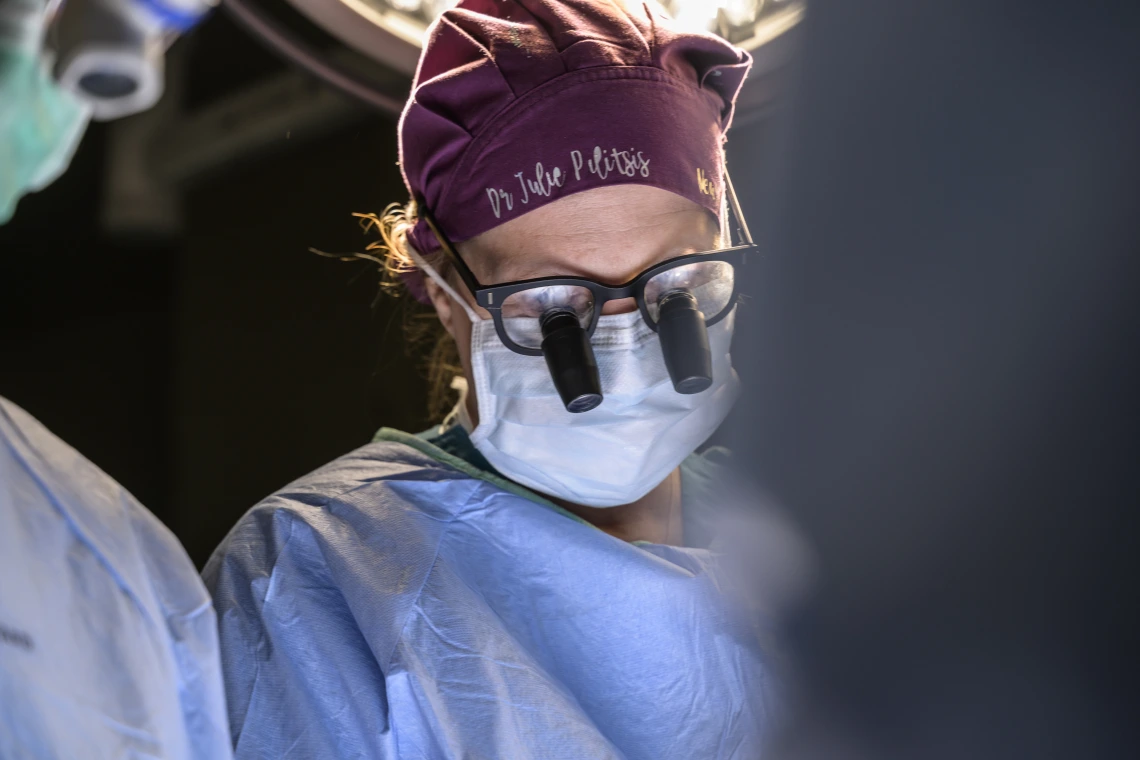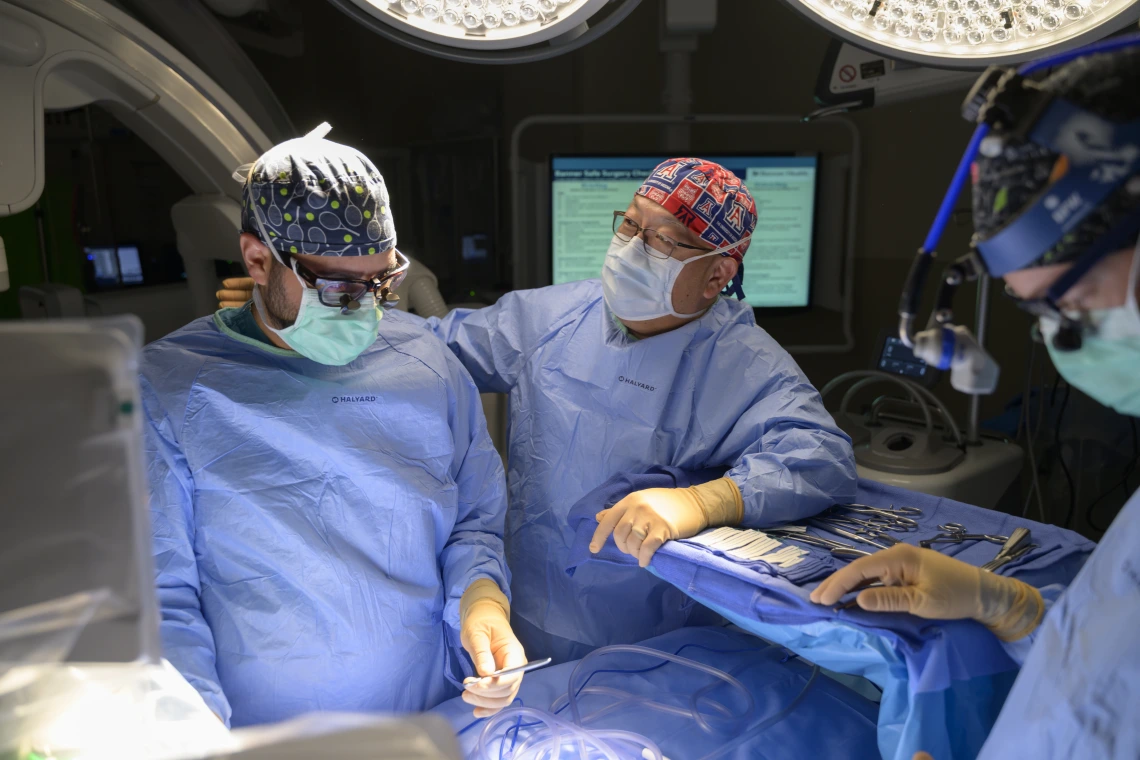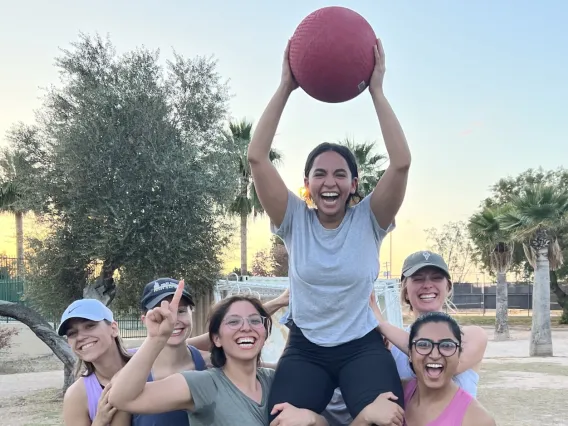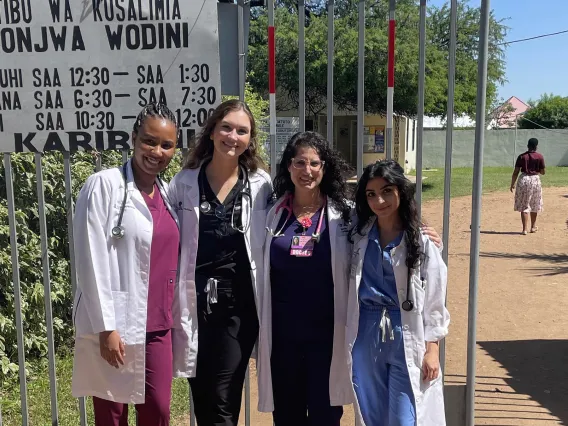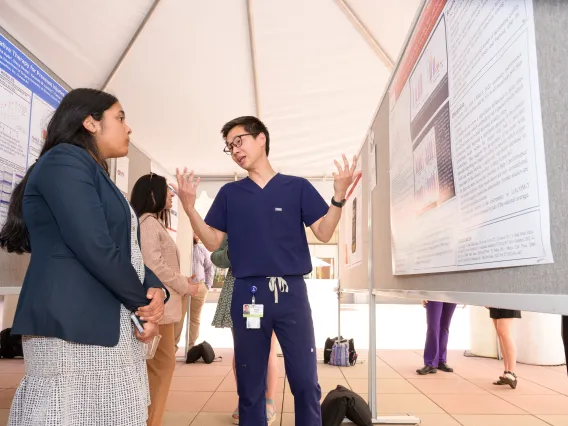Neurosurgery
Residency Program
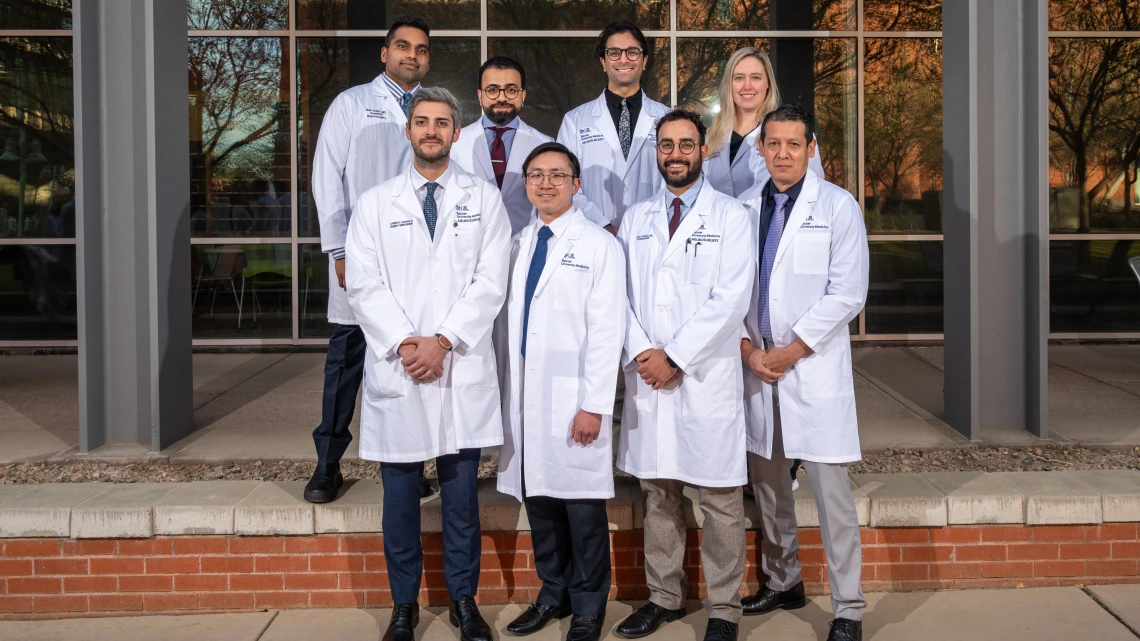
Our Neurosurgery Residency Program offers a robust, well-rounded education with exposure to all key neurosurgical disciplines. Residents gain hands-on experience in cutting-edge procedures and techniques, preparing them for leadership roles in academic and clinical neurosurgery. This program offers an ideal environment for those passionate about advancing the field of neurological surgery.
About Our Program
The Department of Neurosurgery offers a seven-year, integrated residency program in clinical neurosurgery, covering the full spectrum of neurological disease.
Training takes place at two Tucson institutions under the supervision of nine board-certified, fellowship-trained faculty members, providing hands-on experience with more than 3,500 surgeries annually.
- Our residency program emphasizes maintaining a healthy balance between professional and personal life while nurturing each resident’s unique strengths in both clinical neurosurgery and research. The program is designed to support residents in developing their skills across all aspects of neurosurgery while also promoting their growth as researchers.
- Residents are encouraged to engage in research throughout their training, with dedicated time to focus on areas such as neuro-oncology, spinal cord injury and translational genomics, fostering an environment of academic excellence and innovation in neurosurgery.
- The program provides full funding for residents to attend national and subspecialty meetings, ensuring they have access to the latest advancements and opportunities for networking within the field.
- Residents actively participate in a variety of educational activities, including Society of Neurological Surgeons-sponsored boot camps, board preparation courses, and other specialized training events that enhance their clinical knowledge and surgical skills.
- Banner University Medical Center – Tucson, 1625 N. Campbell Ave., Tucson, AZ 85719
- Banner University Medical Center – North Campus, 3838 N. Campbell Ave., Building 2, Tucson, AZ 85719
- University of Arizona College of Medicine – Tucson, 1501 N. Campbell Ave., Tucson, AZ 85724
- Southern Arizona Veteran’s Administration Health Care System, 3601 S. 6th Ave., Tucson, AZ 85723
The program participates in the National Residency Matching Program (NRMP) and the Electronic Resident Application Service (ERAS).
If you are interested in our residency program and would like more information, please contact us.
Year-by-Year Residency Overview
Training is devoted to acquisition of fundamental clinical skills, including an introduction to patient care management in the full, diverse spectrum of neurological surgery subspecialties, with a focus on inpatient neurosurgical care.
Training Sites
- Banner University Medical Center – Tucson
- College of Medicine – Tucson
Key Rotations
- 6 months in neurosurgery
- 1 month in clinical neurology (ACGME-accredited)
- 1 month in neuropathology
- 1 month in neuroradiology
- 2 months in neurosurgery ICU
- 1 month on the critical care management ICU service
Training Site
- Banner University Medical Center – Tucson
- College of Medicine – Tucson
Residents focus on clinical training in neurological surgery with an emphasis on subspecialties such as spine, pain and peripheral nerve, and functional, stereotactic and movement disorders.
Training Site
- Southern Arizona VA Medical Center – Tucson
Residents focus on clinical training in neurological surgery, with emphasis on spine, vascular and pediatric neurological surgery subspecialties.
Training Site
- Banner University Medical Center – Tucson
- Residents conduct 12 months of basic and/or clinical neurosurgical research
- One or more three-month periods may be concurrently supplemented with elective rotations in basic sciences, neuropathology, neuroradiology or other neuroscience subjects as agreed upon by residents and the program director.
- Support of Banner – University Medical Center Tucson with assistance of senior level call respite and inclusion in operative case assignments.
Training Sites
- Banner University Medical Center – Tucson
- College of Medicine – Tucson
Residents in the sixth year of training complete 12 months chief residency training in primary clinical and administrative responsibility.
Training Site
- Banner University Medical Center – Tucson
- College of Medicine – Tucson
- To be determined by resident/program director
Training concludes with a transition-to-practice year, during which time an enfolded neurosurgical subspecialty fellowship opportunity may be arranged to meet the resident’s clinical goals.
Training in Tucson
Contact
Julie M. Schippers
Manager, Residency Program
Department of Neurosurgery
julies@arizona.edu
520-626-2164
Julie G. Pilitsis, MD, PhD, MBA
Chair, Department of Neurosurgery
jpilitsis@arizona.edu
R. John Hurlbert, MD, PhD
Professor and Vice-Chair
Residency Program Director
rjhurlbert@arizona.edu




